Shared Success & Truth Telling: Two Necessary Ingredients for a Fruitful Negotiation
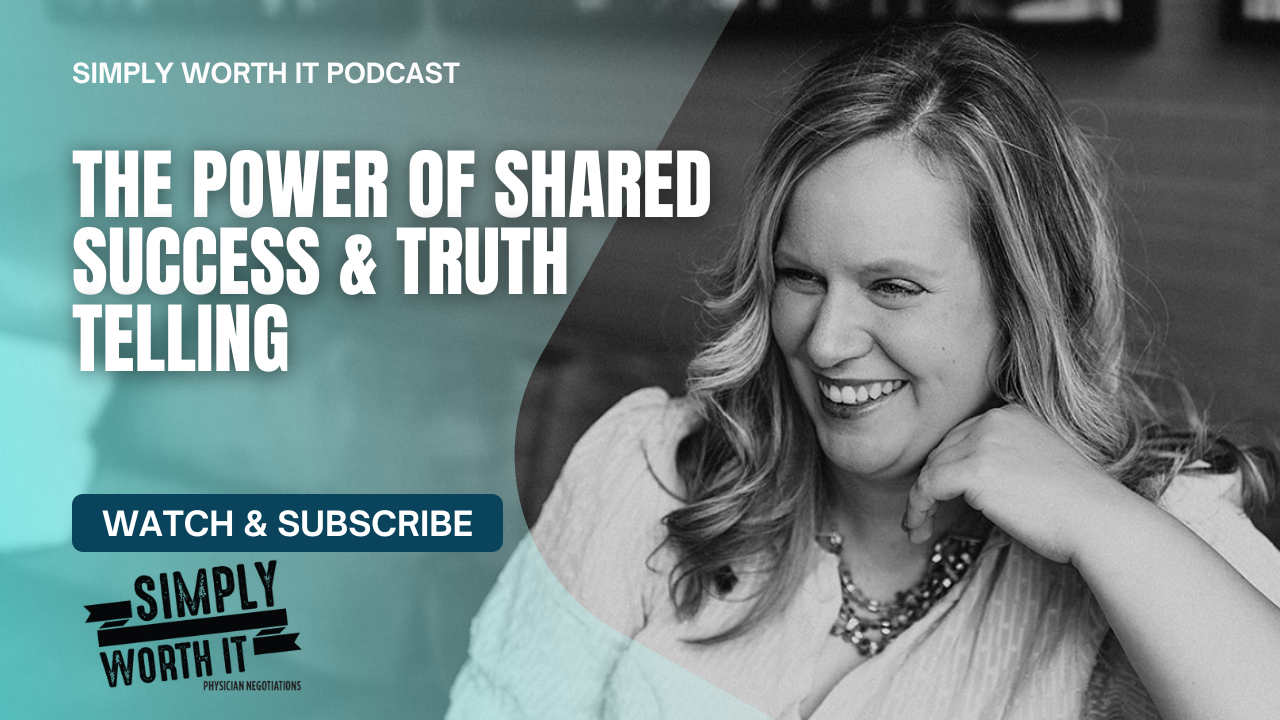
Last week, I introduced a framework for facilitating successful conversation, and the power of Transparency, Relationship and Understanding.
Today, I’m delving into the two remaining and equally important pillars of this framework: shared success, and truth telling/testing assumptions.
How do we create an environment where both sides win?
Does making assumptions hamper a successful conversation?
In this episode, I conclude our two-part series on facilitating T.R.U.S.T.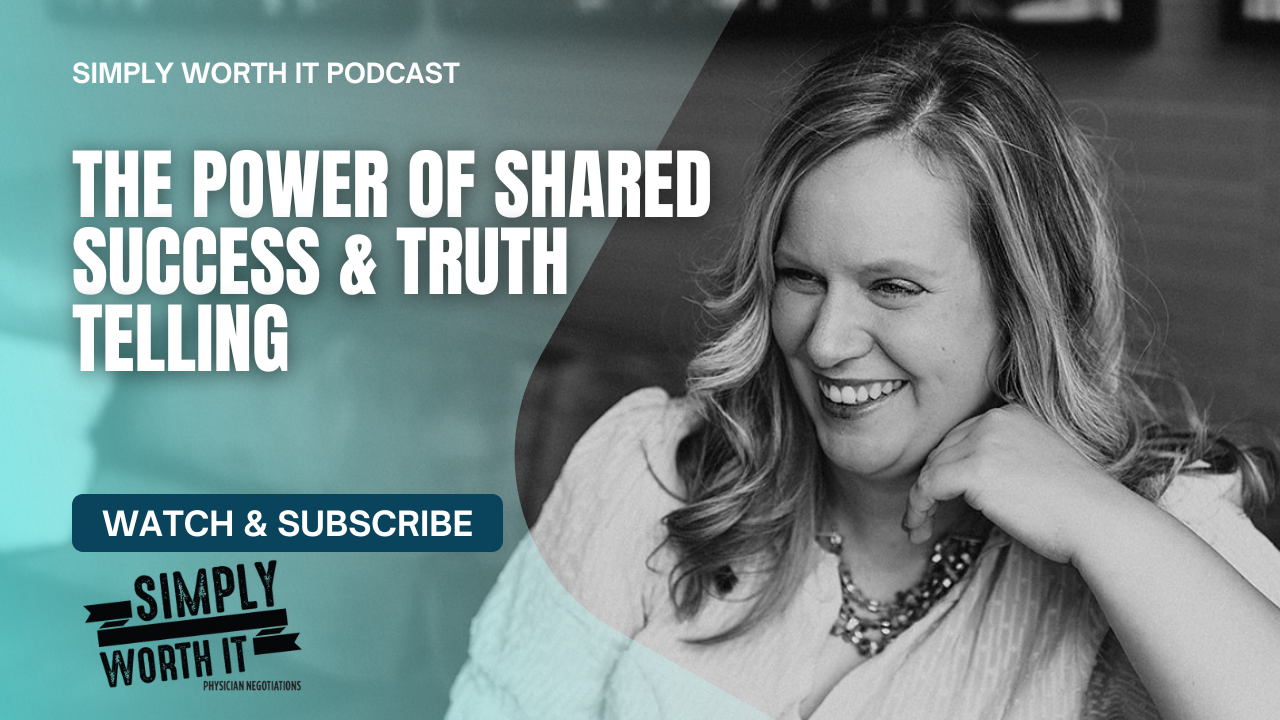
Three Things You’ll Learn In This Episode
- How to pivot from perfunctory to aspirational
What is the difference between goals, expectations and aspirations? - Why assumptions hamper the outcome of our negotiations
Telling the truth has a lot to do with testing our own assumptions. How do we determine if the stories we tell ourselves are unquestionable, and verifiable? - How to be honest without being negative
How do we acknowledge places where improvement is necessary in our jobs?
How to Facilitate Trust & Co-Creation in Any Negotiation
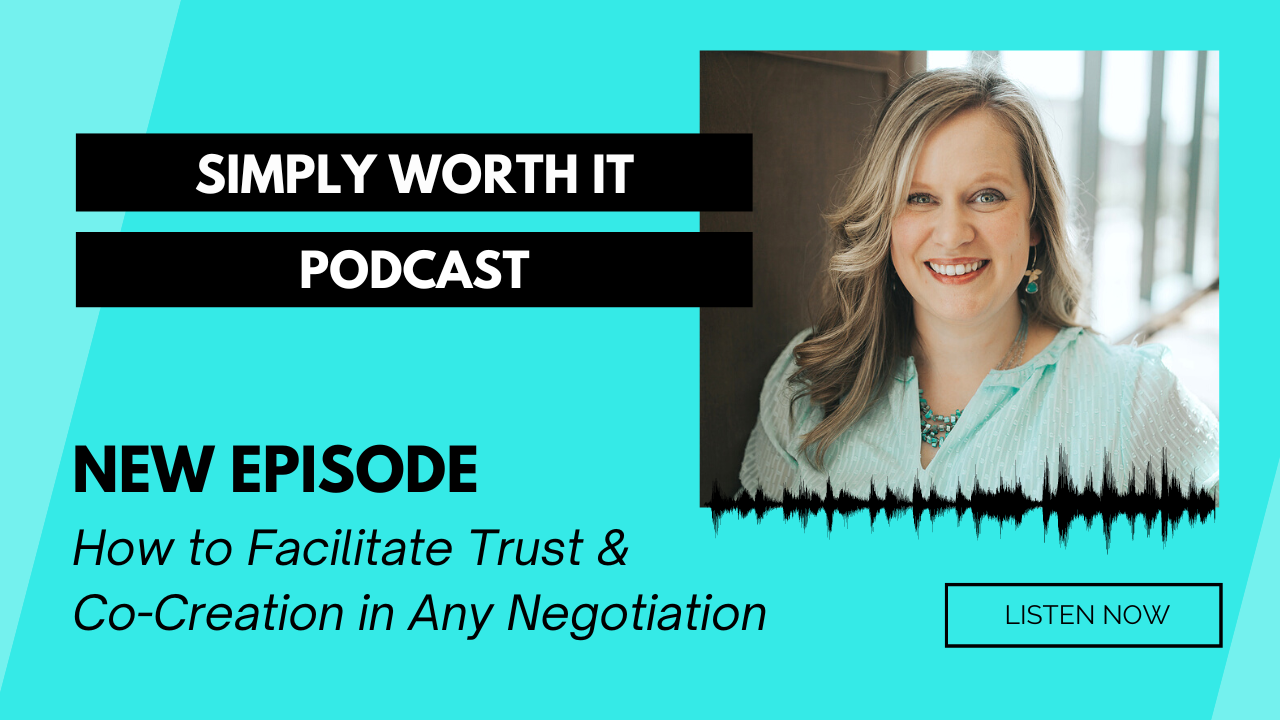
Trust is a key ingredient in any successful negotiation.
It’s impossible to come to a mutually beneficial agreement if there isn’t at least a baseline offer, but what does it actually look like?
I recently learned about a trust facilitation process that turns a negotiation with two agendas into a path of co-creation.
In today’s episode, I’ll share how to actually put it in action.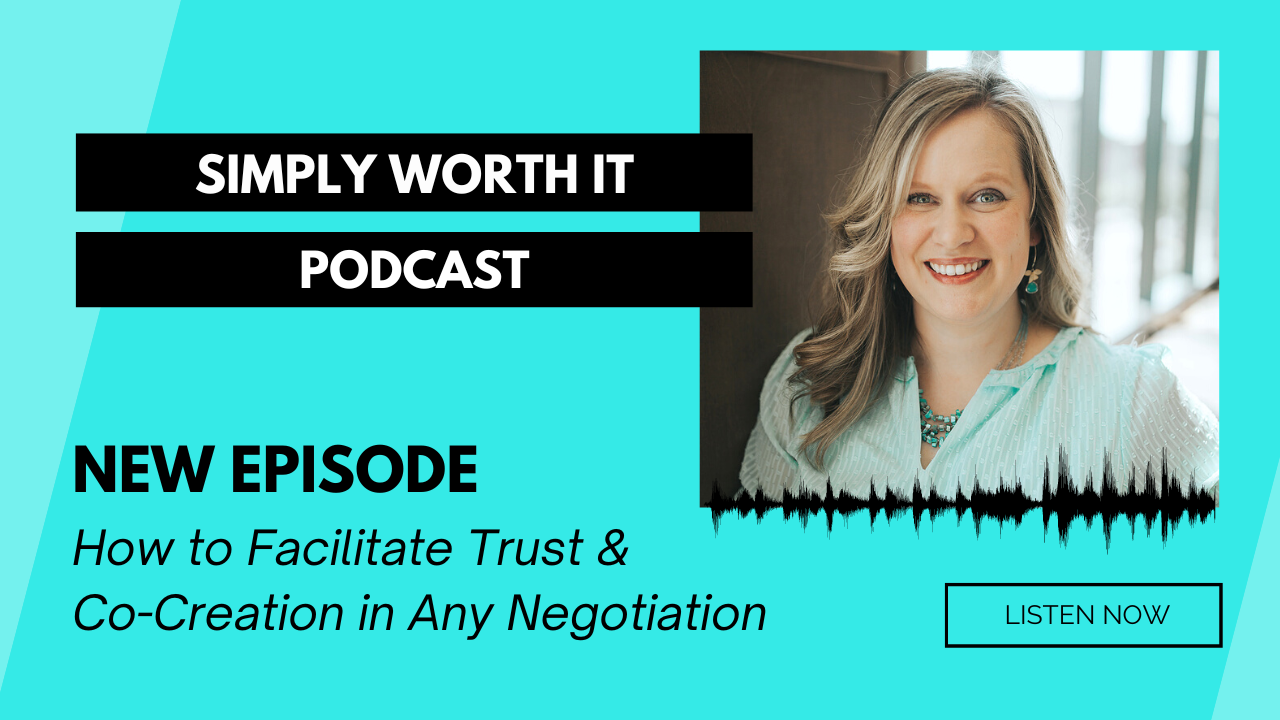
Three Things You’ll Learn In This Episode
- How to be transparent without showing your hand
Most people don’t want to be transparent about what they really want at the start of the negotiation, but does this hesitance actually handicap us? - What co-creation looks like
How do we minimize the gap between where we’re at and where the other side is at? - The path to shared success
It’s one thing to understand why they’re looking for someone to fill a role, but how do we expand our understanding of their long-term vision?
How to Go From Learned Helplessness to Learned Optimism
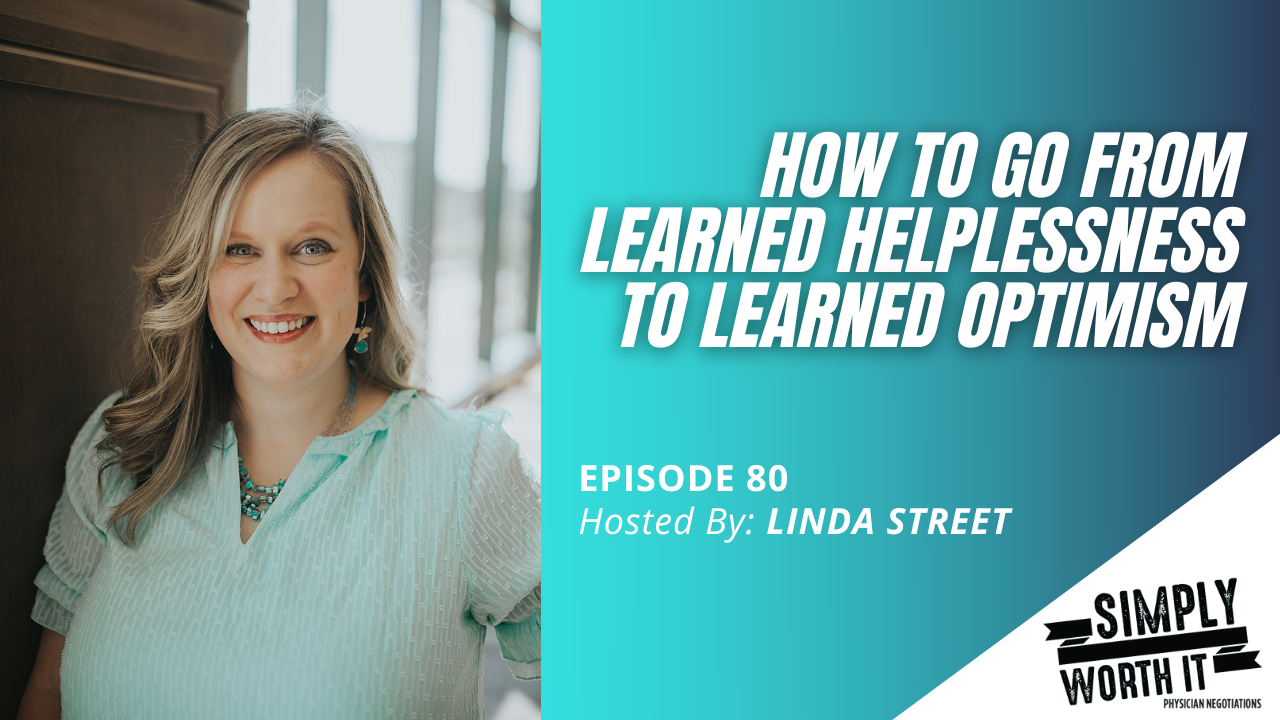
When we’ve had our fair share of negative experiences or heard no too many times, we develop a “why try if it won’t work out” mindset.
In psychology, it’s called learned helplessness.
Learned helplessness pops up all over the place in medicine, and yes, even in our negotiations.
How does this mindset hamper our efforts to advocate for ourselves?
Why does it make us unnecessarily powerless?
In this episode, I’m going to talk about the cure for learned helplessness, and how a few mindset tweaks can change everything.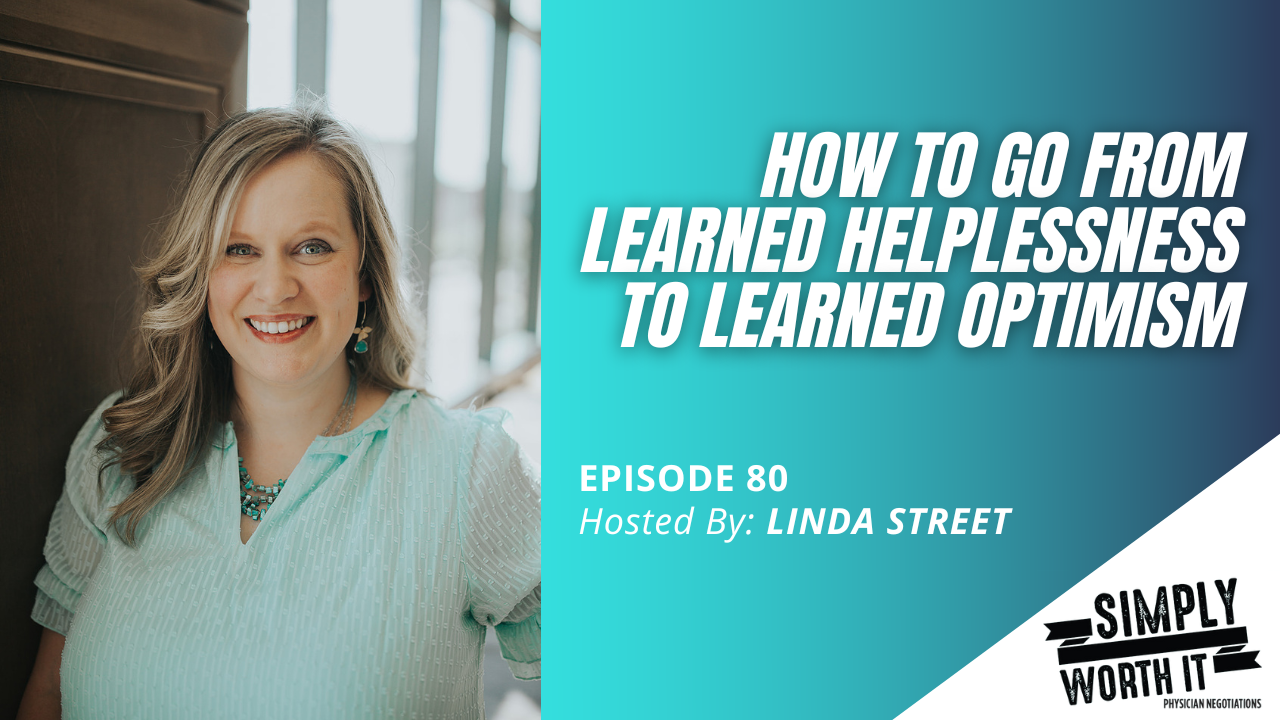
Three Things You’ll Learn In This Episode
- Learned helplessness and self-fulfilling prophecies
Do we fate ourselves to negative outcomes when we’re under the influence of this mindset? - Why learned helplessness removes all our power
We all have the power to incite change in a situation or to at least control how we respond, but how do we access it? - How learned helplessness shows up
If we’re getting stonewalled in a negotiation, or our employers have a long track record of te...
Am I Asking For Too Much? The Trap of Feeling Unreasonable & How to Escape It

When we have a high expectation goal in our negotiations, our gut instinct is to ask ourselves if we’re asking for too much, and self-doubt ensues to the point where we completely undervalue ourselves.
The problem is, this can sabotage us and keep us from a package that reflects the value we offer.
Most of us are actually more likely to underask than overask, and “too much” isn’t a one-size-fits-all.
How do you determine what “too much” looks like in your specific negotiation?
In this episode, I’m going to talk about something I get asked a lot - if we’re ever at risk of making an unreasonable ask.
Three Things You’ll Learn In This Episode
- Why market data empowers us
How do you make sure you aren't out of touch with reality? - The power of upping our risk tolerance
Do we give up on the upside when we’re so focused on whether or not we’re being reasonable? - The real reason we’re afraid of making an unreasonable ask
What we’re really afraid of in most cases is the offer getting rescinded...
Want to Negotiate More Effectively? Switch Out ‘Ask’ for ‘Offer’
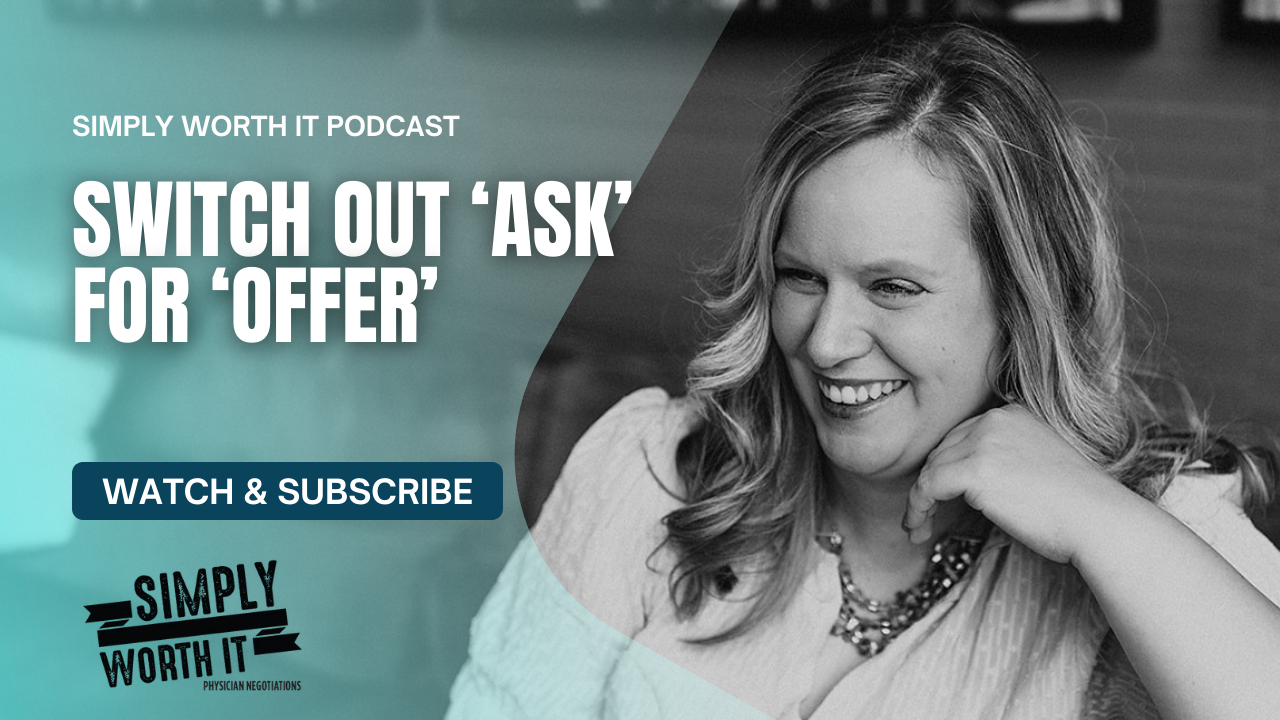
Going into a negotiation, it often feels like we’re asking for people to grant our wishes, but this word ‘ask’ itself can hold us back from fully advocating for ourselves.
It makes us feel greedy, or like we’re trying to get things we don’t deserve.
What if we subbed the word ‘ask’ with ‘offer’?
Could we negotiate for ourselves more effectively by simply switching the language we use?
In this episode, I’m going to share a simple brain hack that will remove a huge hurdle from your negotiation.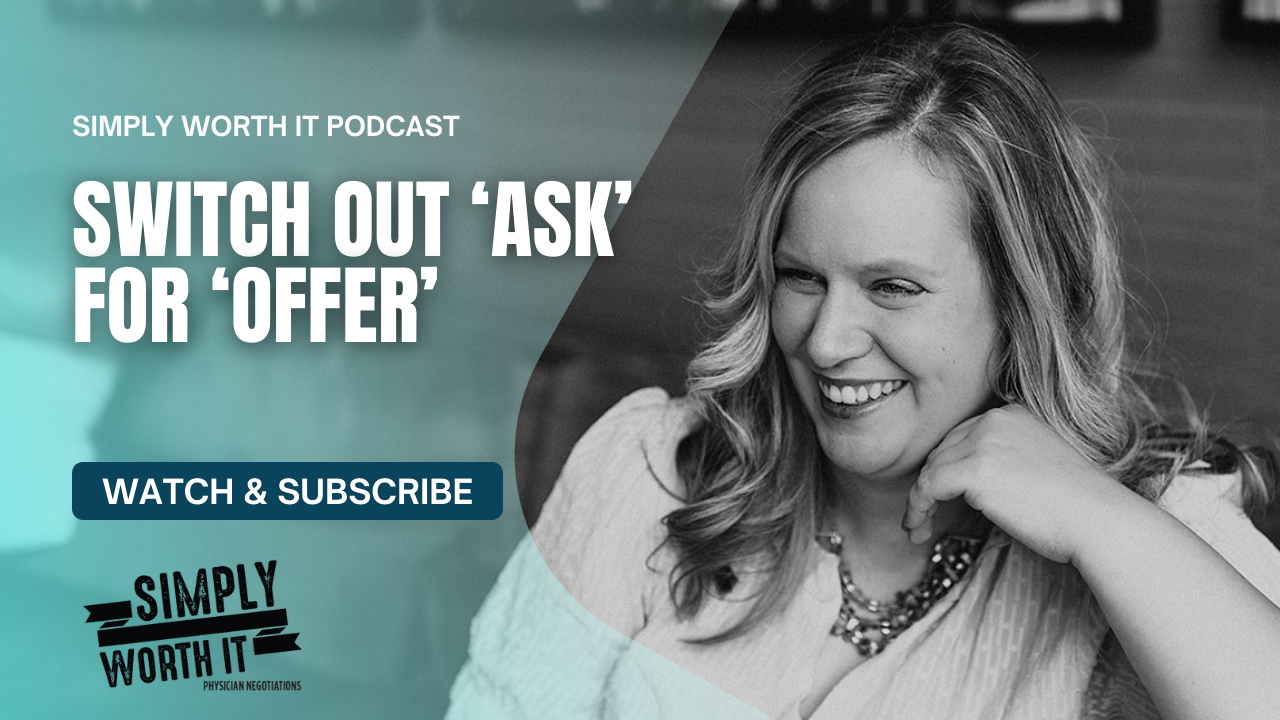
Three Things You’ll Learn In This Episode
- The power of changing your negotiation approach
How does the word ‘offer’ reframe the true value of the negotiation? - Why we struggle with the idea of asking
Many of us are socialized not to ask for things because it makes us feel like we’re being a bother. How do we circumvent these well-trodden neuro-pathways to get what we want? - A simple mental exercise with a huge benefit
How do we identify the limiting beliefs we have around asking for something for...
How to Harness Fierce Compassion in the Face of What We Can’t Control
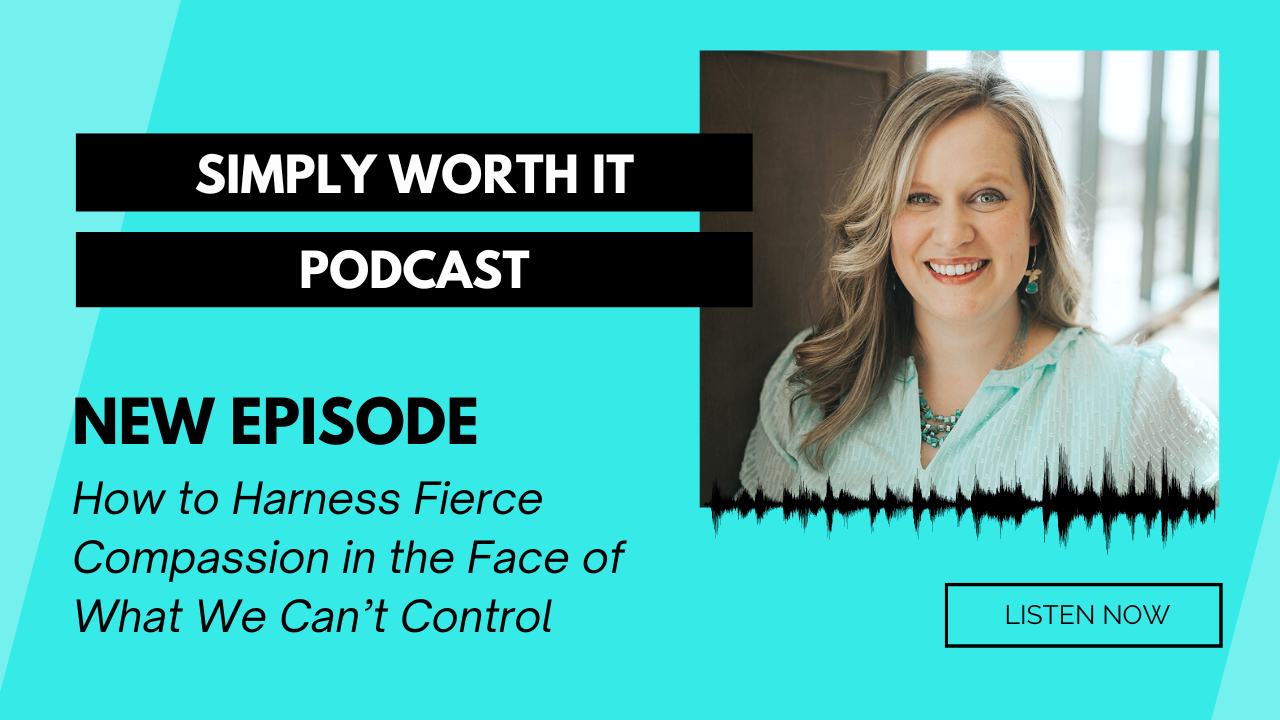
When difficult things happen in the world that we have no control over, getting back up and moving forward is an uphill battle.
How do we equip ourselves to regain our power without ignoring our very real and relevant feelings?
Whether we’re facing disheartening news or a breakdown in a negotiation, there’s a way for us to navigate difficult circumstances without wearing ourselves down.
What is the least energy-depleting way to move ourselves forward?
In this episode, I talk about fierce compassion and why it matters right now. 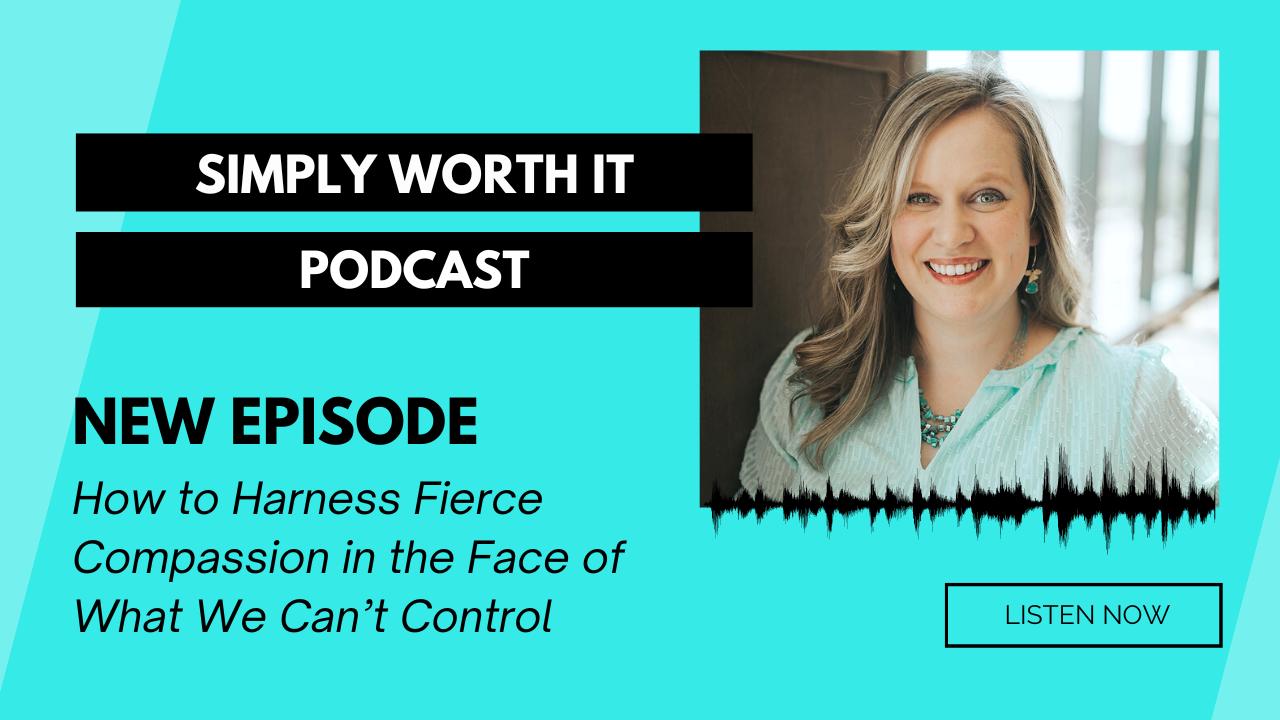
Three Things You’ll Learn In This Episode
- How to allow and acknowledge our emotions
If we don’t like a circumstance, do we have to trick ourselves into feeling better about it? - How to be your own ferocious ally
Is compassion the same as passivity? - Why we must be kind to ourselves, especially now
How do we combat the inner critic that is so deeply ingrained in us as female physicians?
Key Areas of Your Contract You Can’t Afford to Ignore [REPLAY]
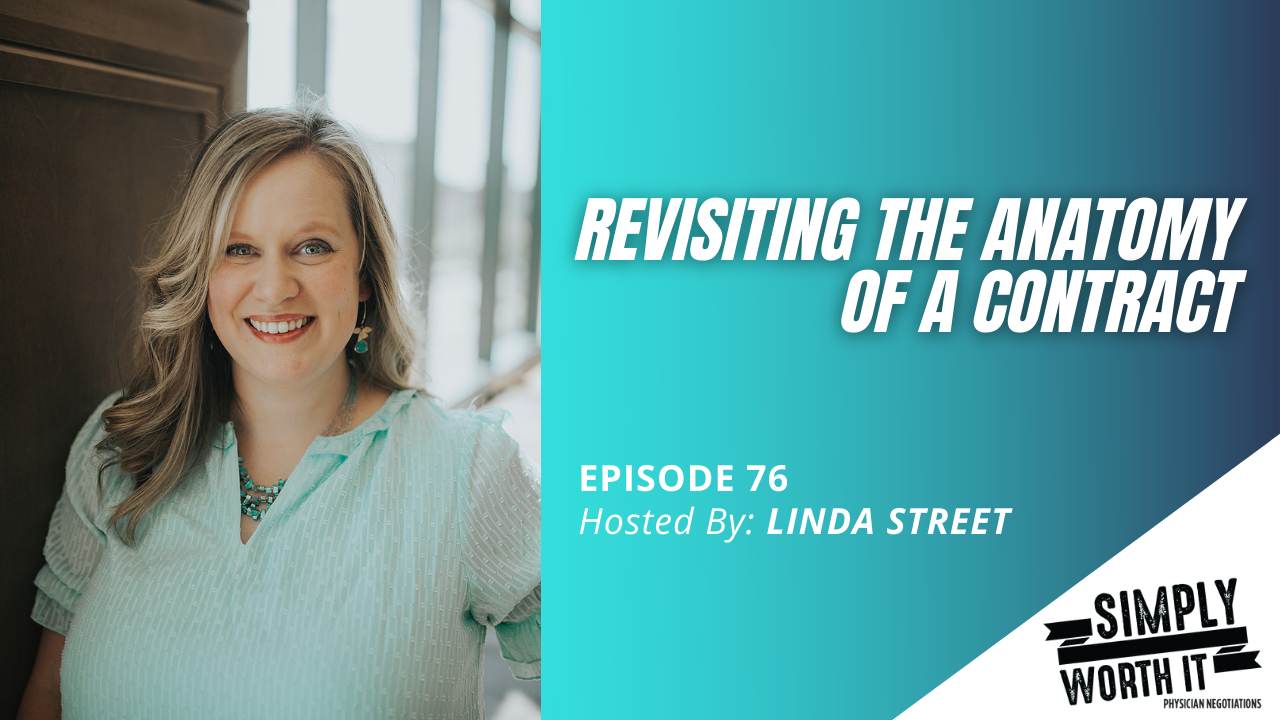
The contracts we end up signing are the culmination of our negotiation efforts and should be a reflection of the things that line up with our worth.
If we’re not aware of exactly what we’re signing on the front end, it’s easy to end up in a nightmarish situation on the back end.
What are the key components of our contract we need to get educated on before we even consider signing on the dotted line?
In this special replay episode, I share some of the things you need to know before you sign a contract.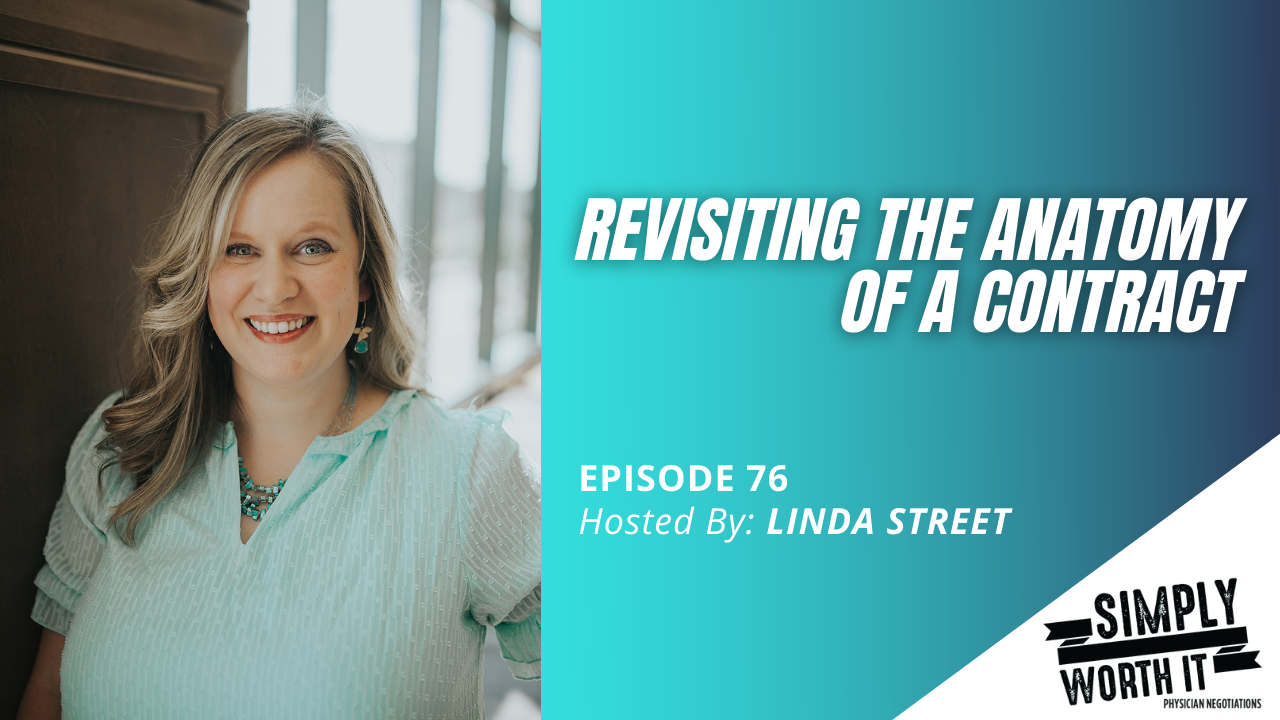
Three Things You’ll Learn In This Episode
- One negotiable area we ignore on our contracts
Where are some of the areas we have wiggle room on our contracts? - Why it’s important to know what we’re giving up
Before we say yes to something by default, how do we get clear on the consequences of our decision? - Why we should pay more attention to outside interests
How do we protect our inventions, and intellectual property outside our 9-5 roles?
If You Say Yes to This Offer, What Are You Saying No To?
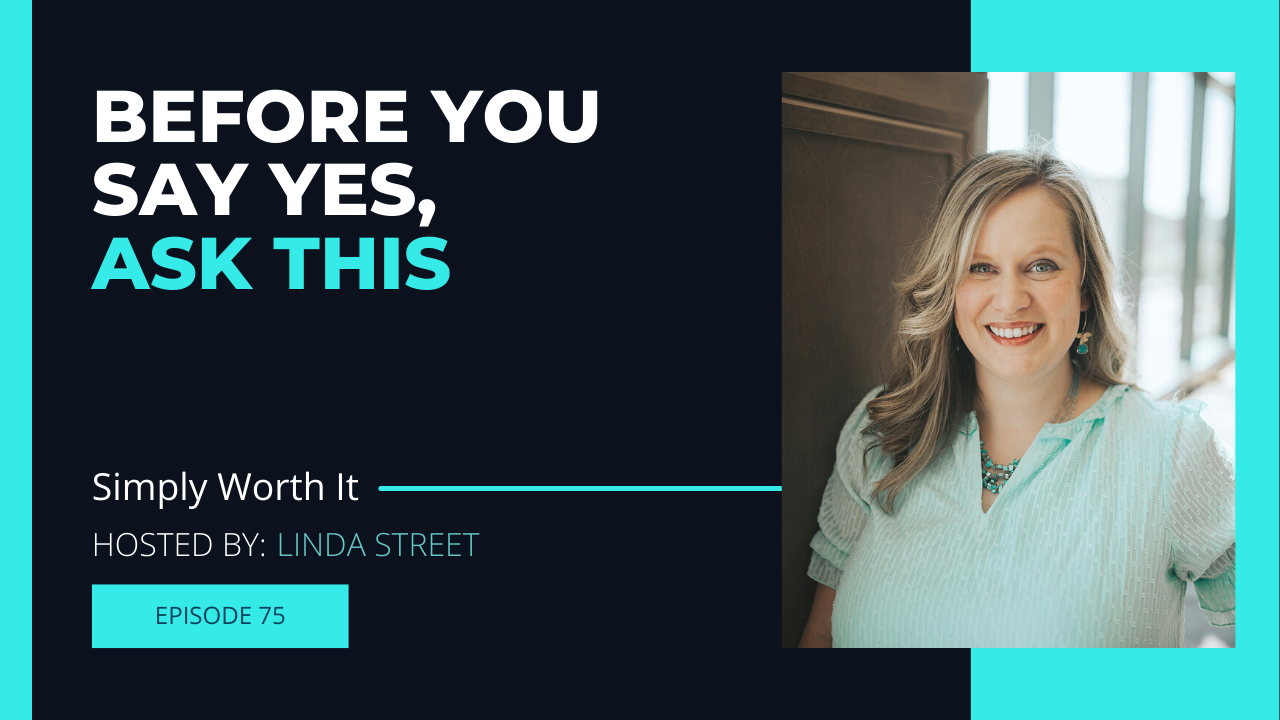
Every decision we make has a consequence.
When we say yes to something, we’re simultaneously saying no to something else.
If we’re not deliberate about our answer, we can sacrifice way more than we gain.
This shows up in every area of our lives, and it most certainly sneaks into our negotiations.
Before we accept whatever offer is put in front of us, we have to be clear on what we’re cutting ourselves off from.
How do we get clarity on what we’re giving up by saying yes to something?
In this episode, you’ll learn a simple hack that will help us make decisions that are truly in alignment with what we value.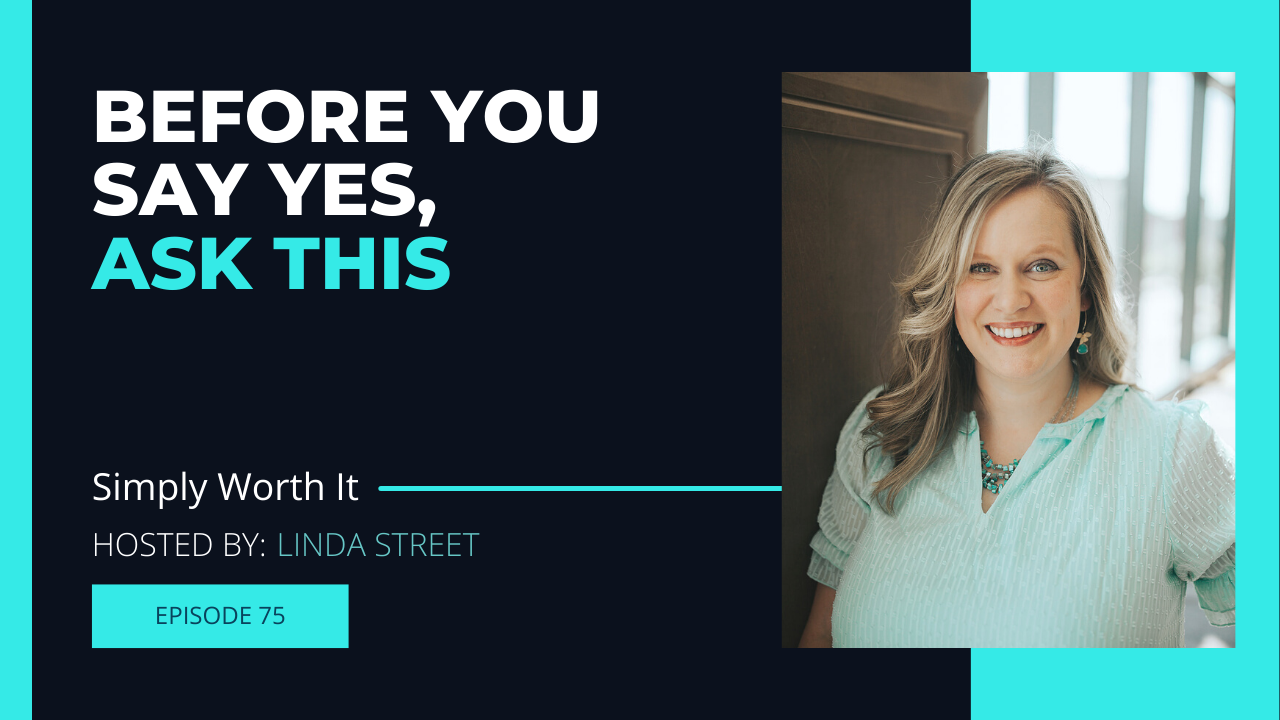
Three Things You’ll Learn In This Episode
- The critical question we must ask ourselves before a decision
What are we saying no to when we say yes to something or accept an offer? - Why it’s important to know what we’re giving up
Before we say yes to something by default, how do we get clear on the consequences of our decision? - How to avoid letting ourselves down in favor of a no...
Protecting Ourselves From the Hostile Business Side of Medicine with Dr. Steven Cyr

Medicine isn’t just about the patients we treat, it also has a huge business component that heavily influences how we work.
The business side of this industry often feels like a minefield and because we have very little control over it, physicians can suffer heavily.
There are a million things you can do incorrectly and traps we can fall into based on the way healthcare is structured today.
Many well-intentioned doctors have found themselves on the wrong side of the business of medicine - unfairly kicked out, facing lawsuits and even federal indictments filed against them.
What are the traps we need to be aware of?
How do we protect ourselves on the front end so we’re not cleaning up messes on the backend?
In this episode, I’m joined by Dr. Steven Cyr, the author of “Cutthroat: A Surgeon’s Fight against Big Government, Corrupt Businessmen, and a Broken Healthcare System”.
He shares all the ways the business of healthcare can go wrong for us, and how to protect ourselves.
Three Things You’...
The Most Actionable & Self-Compassionate Way to Look at Hope
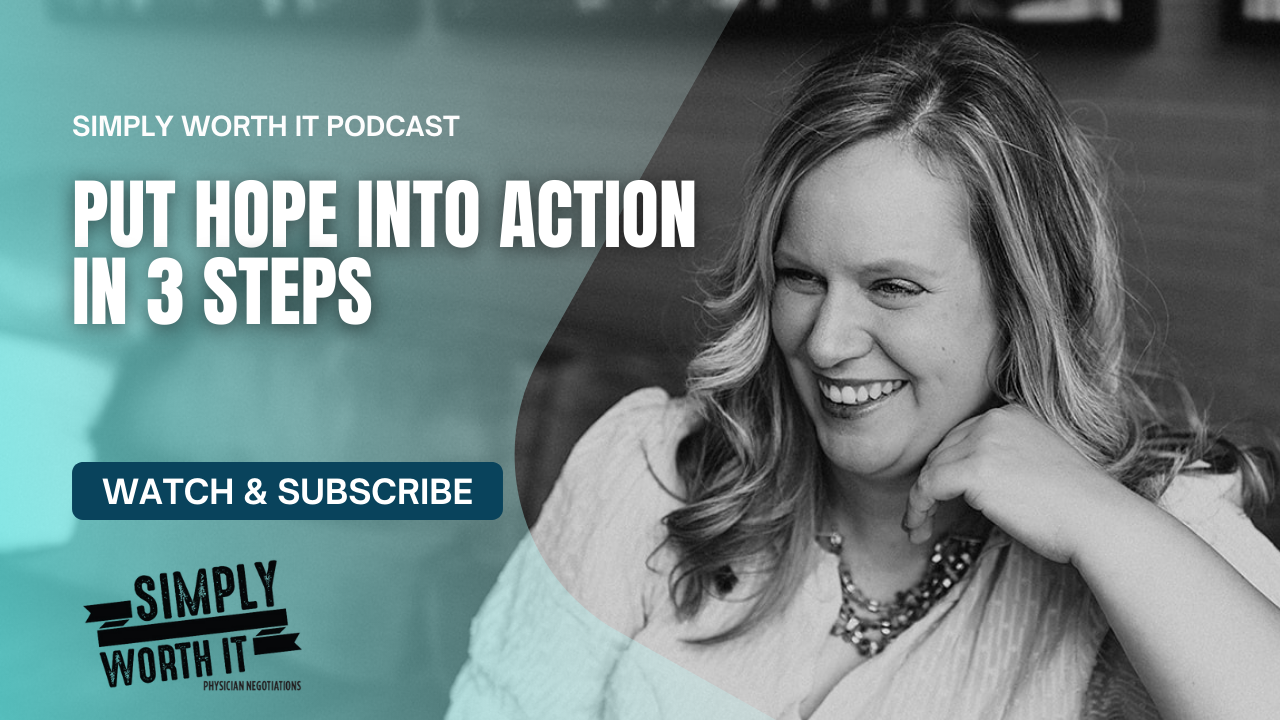
In the thick of heavy emotions or challenging times, the idea of hope feels nebulous and impossible to put into action.
Hope isn’t an autopilot emotion, but what if we had a framework for it and a process we can follow to push forward?
Whether we’re trying to negotiate for our dream job, or navigate difficult situations, what steps can we take to put the concept of hope into action?
In this episode, I’m going to share how to use hope to move ourselves forward.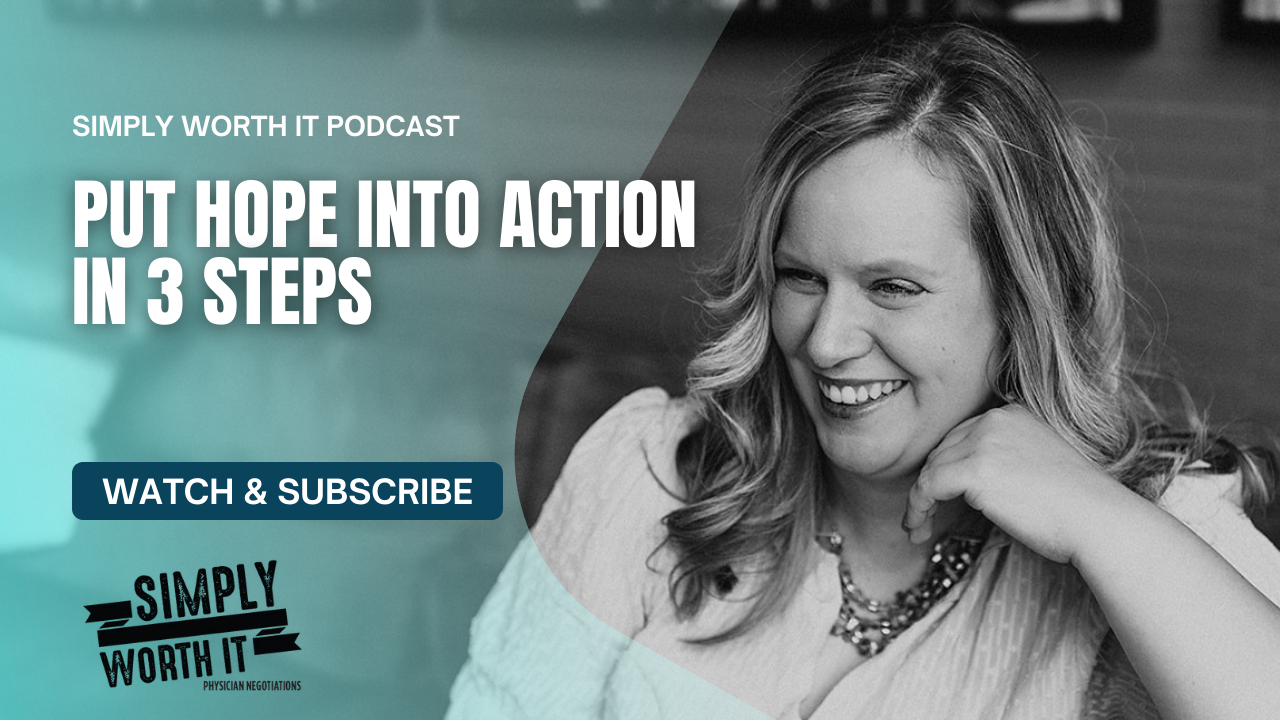
Three Things You’ll Learn In This Episode
- Why hope is necessary
What role does hope play in our negotiations and our jobs? - Why hope isn’t just an emotion
Can we have hope and put it in action when we’re feet-on-the-ground realists? - How to be more open to reroutes and pivots
Is hope possible when we’re not 100% sure what the route to our goals looks like?

